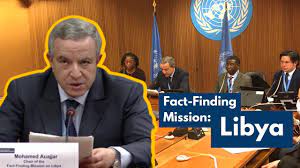International Day of Non-Violence
“Nonviolent action is a technique by which people who reject passivity and submission, and who see struggle as essential, can wage their conflict without violence. Nonviolent action is not an attempt to avoid or ignore conflict. It is one response to the problem of how to act effectively in politics, especially how to wield powers effectively.”[vi]
Wednesday, October 2nd, marks the International Day[vii] of Non-Violence, adopted by the UN General Assembly[viii] in 2007. This date is the birthday of Mahatma Gandhi, leader of the Indian independence movement and twentieth century pioneer of the philosophy and strategy of non-violence.
According to the General Assembly resolution this International Day is an occasion to “disseminate the message of non-violence, including through education and public awareness”, reaffirmation of the “universal relevance of the principle of non-violence” and a desire “to secure a culture of peace, tolerance, understanding and non-violence”.
The principle of non-violence, also known as non-violent resistance, rejects the use of physical violence in order to achieve social or political change. Often described as “the politics of ordinary people”, this form of social struggle has been adopted by mass populations all over the world in campaigns for social justice.
While non-violence is frequently used as a synonym for pacifism, since the mid-twentieth century the term non-violence has been adopted by many movements for social change which do not focus on opposition to war.
One key tenet of the theory of non-violence is that the power of rulers depends on the consent of the population, and non-violence therefore seeks to undermine such power through withdrawal of the consent and cooperation of the populace[ix].
There are three main categories of non-violence action:
- protest and persuasion, including marches and vigils;
- non-cooperation; and
- non-violent intervention, such as blockades and occupations.
In his message[x], to commemorate the International Day of Non-Violence for 2019, the Secretary General of the United Nations wrote “Violence in our difficult times take many forms: from the devastating effects of a climate emergency, to the devastation of armed conflicts; from the types of humiliating poverty, to the injustice stemming from human rights violations and the brutality of the wounds of hate speech.
Indeed, in virtual space and on the real world, we encounter disgusting rhetoric aimed at minorities and anyone deemed ‘different’. To address this growing challenge, the United Nations has launched two urgent initiatives: an action plan against hate speech, and one on the protection and safety of religious sites. Last week, I issued a Global Call for a Decade of Action to Achieve the Sustainable Development Goals, our roadmap to move away from violence and towards peace, prosperity and dignity on a healthy planet”.
Human Rights Solidarity
Tripoli – Libya
October 2nd, 2019
[vi] Professor Gene Sharp: “The Politics of Nonviolent Action”.
[vii] United Nations: “International Day of None-Violence, 2 October”
[viii] United Nations: “General Assembly Resolution (61/271)”, 15th June 2007.
[ix] For more material on the politics of the principle of none-violence, see the publications of Professor Gene Sharp on the website of Albert Einstein Institution. These publications are available free of charge in Arabic and many other languages.
[x] United Nations: “Message by the Secretary General on the International Day of None-Violence”.




